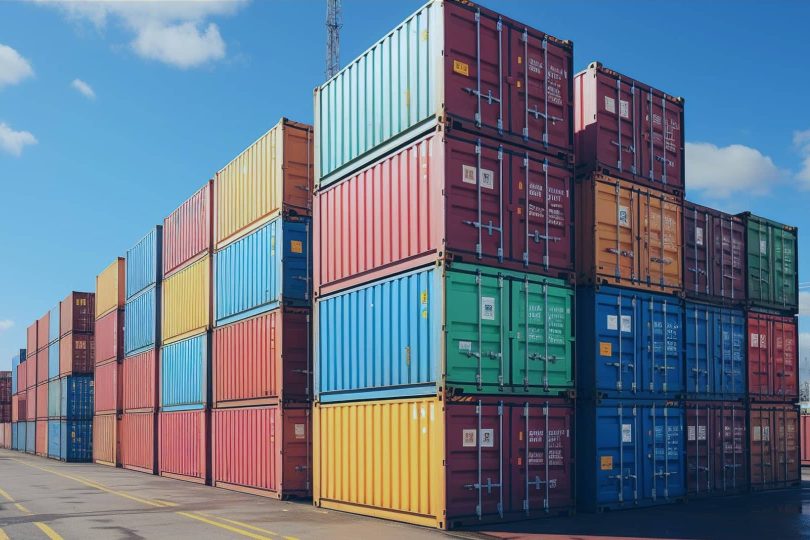In today’s fast-paced world of logistics and supply chain management, businesses are constantly seeking ways to streamline their operations and enhance efficiency. One crucial tool that has gained significant importance in recent years is freight tracking software. This article will delve into what freight tracking software is, why it is essential, what users should look for in such software, its advantages, and address some frequently asked questions.
What is Freight Tracking Software?
Freight tracking software is a technological solution designed to monitor and manage the movement of goods throughout the supply chain. It provides real-time visibility into the location and status of shipments, allowing businesses to track their cargo from origin to destination. This software helps companies optimize their logistics operations, reduce costs, and improve customer service.
Why Freight Tracking Software is Needed?
- Enhanced Visibility: One of the primary reasons for adopting software is to gain better visibility into the supply chain. Businesses can track their shipments in real time, enabling them to proactively address any issues that may arise during transit.
- Efficiency: The software automates many manual processes involved in logistics management, such as data entry and paperwork. This automation leads to improved efficiency, reduced errors, and faster decision-making.
- Customer Satisfaction: The ability to provide accurate and up-to-date information on shipment status to customers can significantly enhance their experience. This leads to increased customer satisfaction and loyalty.
- Cost Savings: By optimizing routes, reducing delays, and minimizing the risk of lost or damaged cargo, software can help businesses cut down on transportation costs.
What Users Should Look for in Freight Tracking Software?
When choosing the right freight tracking software for your business, several key factors should be considered:
- Real-Time Tracking: Ensure that the software provides real-time tracking capabilities so you can monitor shipments as they move through the supply chain.
- Compatibility: Check if the software can integrate seamlessly with your existing systems and technologies, such as your transportation management system (TMS) or warehouse management system (WMS).
- User-Friendly Interface: Look for software that is easy to use and navigate. Complex interfaces can lead to confusion and inefficiency.
- Customization: The ability to customize the software to meet your specific business needs is crucial. Different businesses have different requirements, and a one-size-fits-all solution may not be suitable.
- Data Analytics: It should provide robust data analytics capabilities, allowing you to gain insights into your supply chain performance and make informed decisions.
- Customer Support: Choose a software provider that offers excellent customer support to assist you in case of any issues.
Advantages:
- Improved Efficiency: Freight tracking software streamlines operations, reducing manual work and the likelihood of errors, ultimately leading to increased efficiency.
- Cost Reduction: By optimizing routes and monitoring cargo conditions, businesses can reduce fuel consumption, maintenance costs, and the risk of cargo loss or damage.
- Enhanced Customer Service: Real-time tracking and accurate information improve customer service, leading to higher satisfaction and loyalty among clients.
- Competitive Advantage: Businesses that implement software can gain a competitive edge by providing better services and more transparent information to customers.
- Data-Driven Decision-Making: Access to data and analytics helps businesses make data-driven decisions, leading to improved performance and strategic planning.
FAQ – Frequently Asked Questions
Q1: Can small businesses benefit from freight tracking software?
A1: Absolutely! Software can be scaled to meet the needs of small businesses, helping them enhance efficiency and customer service.
Q2: Is freight tracking software suitable for international shipments?
A2: Yes, many tracking solutions offer international tracking capabilities, making it ideal for businesses involved in global trade.
Q3: Are there mobile apps for freight tracking software?
A3: Yes, many software providers offer mobile apps that allow users to track shipments on the go, ensuring constant visibility.
Q4: How does freight tracking software improve supply chain security?
A4: It provide real-time security updates and alerts, reducing the risk of cargo theft or tampering.
Conclusion
In conclusion, choosing the right freight tracking software is a crucial decision for businesses aiming to optimize their logistics operations, reduce costs, and improve customer service. By considering the factors mentioned above and understanding the advantages, businesses can select the software that best aligns with their needs and goals, ultimately leading to greater success in the competitive world of supply chain management.





